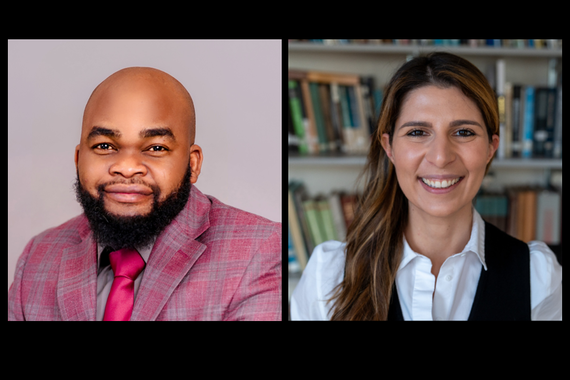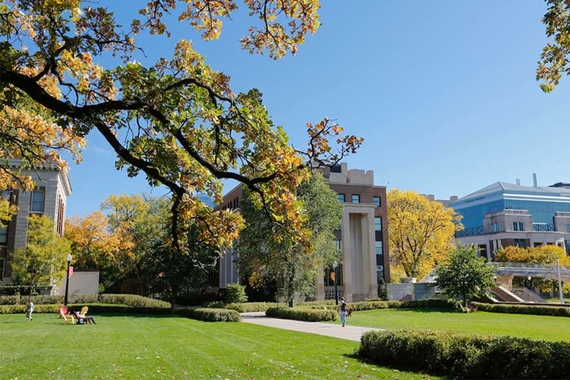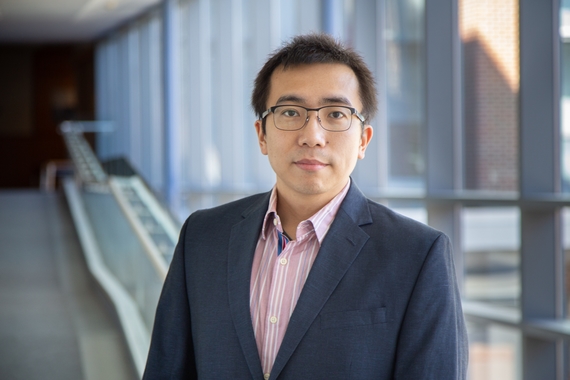Interview with Alumni Award Winner Dr. Lindsey Dietz
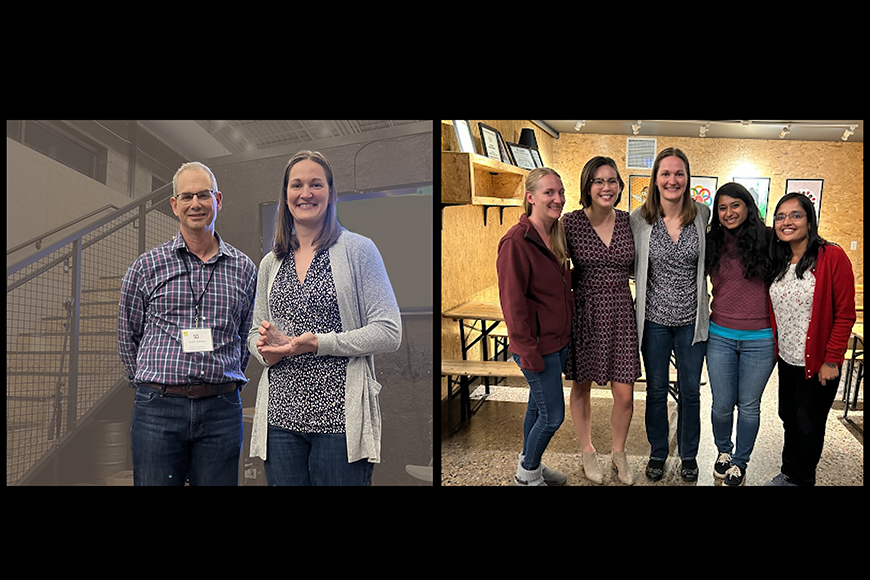
(Left) Dr. Lindsey Dietz poses with School of Statistics Director, Galin Jones, after being presented her award.
(Right) Statistics alumnae Megan Heyman, Christina Knudson, Lindsey Dietz, Haema Nilakanta, and Sakshi Arya pose for a reunion photo.
Prior to receiving the School of Statistics Alumni Award, Lindsey Dietz (PhD, ‘16) had already been recognized as an honoree in the Minneapolis/St. Paul Business Journal’s 40 Under 40 Awards for her many professional and community-oriented accomplishments, and her work as a data science manager at the Federal Reserve Bank of Minneapolis. With us, she sheds some light on how she became a statistician in the first place, shares some defining educational experiences, and reveals the activities that keep her engaged outside of work.
What brought you to the U of M School of Statistics for your degree? How did you end up studying statistics?
The Statistics PhD program at UMN was well rounded with both theoretical and applied approaches as part of the core curriculum. This appealed to me more than other universities that were more focused on one specific area of statistics. I spoke with several former students who relayed their positive experiences about attending UMN School of Statistics.
I wanted to study statistics after working for a few years and feeling an ongoing desire to seek deeper understanding of the statistical fundamentals. I also initially had the goal of becoming a professor but changed course part way through my graduate degree after finding a passion for consulting.
What was one of the defining experiences during your time as a statistics student that you still think about?
The most defining experiences I had were around statistical consulting with students, professors, and researchers. Consulting helped me learn about communication of statistics. In many cases, I needed to persuade very smart people to use techniques they may not have heard about previously in their field.
My favorite consulting project was working with a graduate student and professor in the Spanish department. They had written code in Spanish (which I don’t speak), but I could understand exactly what was happening since the code was a common language. The modeling I helped them do was novel in their area and the data they had collected actually fit well with the model (which can be rare).
What experience on your resume or CV would people be surprised to discover?
Those who only know me professionally may be surprised to know that I’m a hall of fame athlete at both my high school and college. In my undergraduate days at University of Minnesota-Duluth, I averaged just over 20 points per game playing on the varsity basketball team.
When you’re not at work, what are you doing?
I enjoy road cycling especially on the many great trails we have around the Twin Cities. I also like to travel to new places both domestically and internationally. My partner and I just recently visited the 5 beautiful national parks in southern Utah.
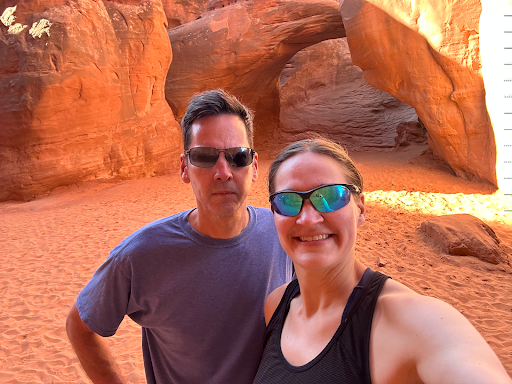
What is a specific thing that makes you proud to be associated with the University of Minnesota or the School of Statistics?
After seeing huge disparities in gender equity in fields of finance and economics, I’m proud of the continued work the University and School of Statistics has done to continue to promote women in the field. I was also excited to see the school begin to waive application fees and testing requirements to continue to break down barriers around who can pursue graduate education. The School has also supported Dr. Christina Knudson and me in our efforts to create and run the noRth conference for R users. They have consistently helped us meet our goals to ensure we bring underrepresented speakers (women and minorities) to the forefront.
What professional or personal challenges have you had to overcome, and how have they contributed to your success today?
In 2015, I was a pedestrian in a car vs. pedestrian accident. I needed surgery on both legs and had to spend six weeks in a Transitional Care Unit at an Assisted Living facility. I was worried that my physical and mental health would not fully recover. Through painstaking rehabilitation work, I was able to return to strong physical and mental shape within 12 months of the accident. I finished my PhD on schedule in 2016 and walked in the graduation ceremony. A lot of people say doing a PhD is the hardest thing they’ve ever done, but I’m even more proud of mine given the additional challenges I went through. This experience has given me a lot of things to take forward including more patience with myself and a step-by-step approach to overcoming challenges.
